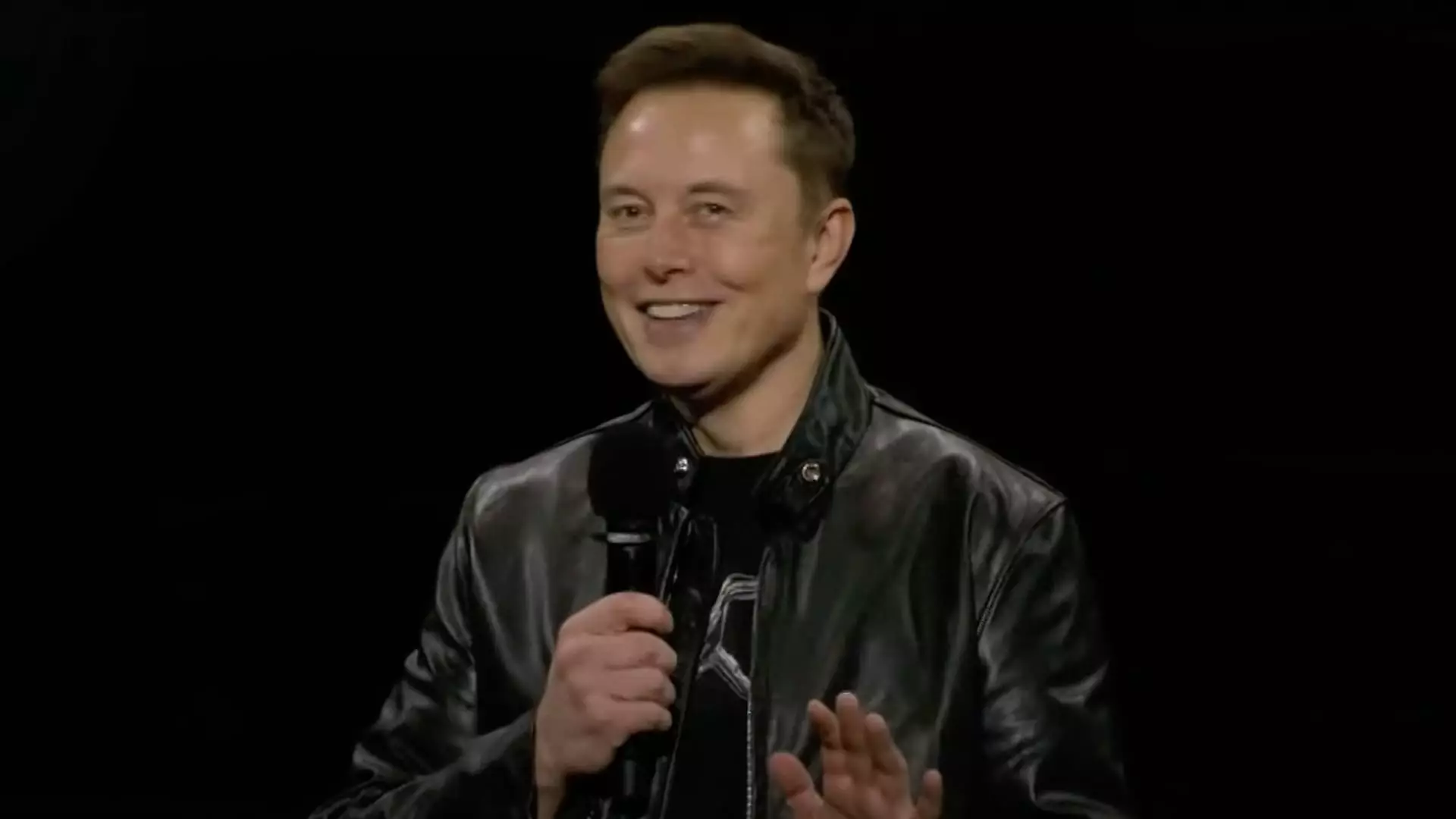In recent developments, Elon Musk, the celebrated and controversial CEO of Tesla, has experienced a substantial financial windfall, adding approximately $26 billion to his net worth in a single day. This sudden increase propelled his overall wealth to around $269 billion, positioning him firmly as the world’s wealthiest individual. This remarkable growth in Musk’s fortune coincided with Tesla’s stock rally, marking its most significant day of trading since 2013. Such volatility in the stock market underscores the constant ebb and flow associated with tech giants, particularly those like Tesla, known for their ambitious innovation strategies and market unpredictability.
Musk’s ownership of nearly 13% of Tesla’s shares constitutes the majority of his wealth, alongside his expansive holdings in other ventures, including SpaceX—a firm currently valued over $200 billion in private markets. Furthermore, Musk maintains controlling stakes in X (previously Twitter) and the nascent AI startup, xAI, indicating his diverse investments in technology and communication sectors. Despite being buoyed by recent gains, Musk’s financial status is influenced heavily by his ongoing dealings and the pending legal contours surrounding a shareholder lawsuit related to his 2018 compensation package.
Tesla’s recent earnings report, released just before Musk’s wealth surge, revealed some compelling financial data. The electric vehicle producer reported an earnings per share figure of 72 cents, which notably exceeded analysts’ expectations of 58 cents. This financial performance was buoyed by significant revenue contributions, particularly a remarkable $739 million from environmental regulatory credits and $326 million associated with its Full Self-Driving (FSD) program.
While these figures signal a robust income stream for the company, they also highlight a reliance on auxiliary revenue sources, which may raise questions about the sustainable growth trajectory of Tesla as it navigates short-term market fluctuations. Following the release of these earnings, Tesla’s stock rebounded from a precarious position where it was facing its most disappointing month since January, leading to a celebratory effect for investors. The stock’s remarkable 22% rise marked it as the second-largest gain since its IPO, dramatically shifting investor sentiment.
The Path to Autonomy: Promises and Missed Deadlines
A significant portion of Musk’s narrative during earnings calls has revolved around the promise of an autonomous future for Tesla. Musk recently painted an optimistic picture of “vehicle growth” projections for the upcoming year, predicting increases between 20% and 30%. Furthermore, he envisions deploying a ride-hailing service powered by Tesla’s Full Self-Driving technology in key markets like Texas and California as early as next year.
However, these visions of autonomy must be viewed with caution. Despite Musk’s ambition, the reality remains that Tesla’s autonomous functionality is still far from being fully realized or safe for public use without direct human oversight. Competitors such as Waymo have established reliable driverless services, while Tesla is faced with scrutiny for not meeting its own expectations. Moreover, developments regarding Tesla’s Semi truck and the revamped Roadster highlight the company’s ongoing struggles with timely product rollouts, raising concerns about execution versus promises.
Another facet of Musk’s multifaceted life is his foray into the political arena. His recent endorsement of former President Donald Trump has drawn both admiration and discontent. Critics have voiced concerns regarding the implications of Musk’s political activism on his role as CEO, emphasizing that such activities might conflict with his primary responsibility—to bolster shareholder value. Musk’s significant financial contributions toward political action committees supporting Trump have raised ethical questions about the intersection of wealth, influence, and democracy.
In his outspoken approach, Musk has attempted to engage voters in key battleground states, using incentives such as a $1 million daily giveaway to registered voters who support his PAC. This move has caught the attention of the Department of Justice, which has expressed reservations regarding the legality of such initiatives under federal election laws. As a result, Musk finds himself at the crux of political dynamics, where his actions could have consequences that ripple through both his business ventures and moral responsibilities as a public figure.
Elon Musk represents a case study in modern wealth and influence, embodying the duality of creating groundbreaking innovations while simultaneously navigating the ethical complexities of wealth and power. His journey reflects not only the volatile nature of stock markets and investor confidence but also the ethical implications of intertwining personal ideologies with professional responsibilities. Musk’s trajectory offers a lens through which we can scrutinize not just an individual, but an era where technology, wealth, and politics intersect in often unpredictable ways. As we observe Musk’s future moves, it becomes critical to balance the admiration for his vision with the need for accountability in both corporate governance and active citizenship.

